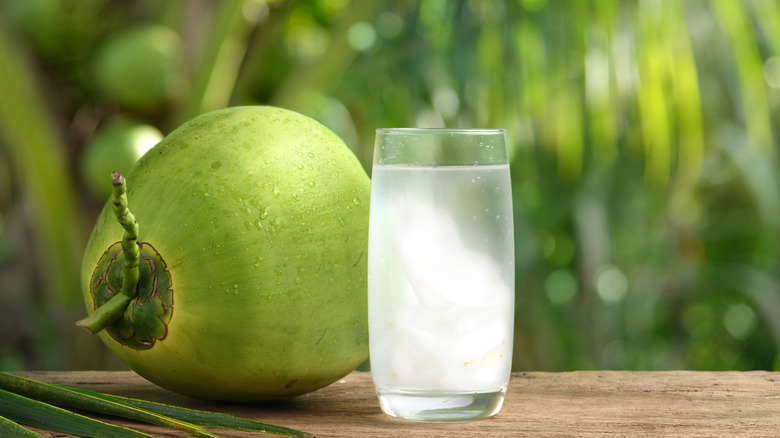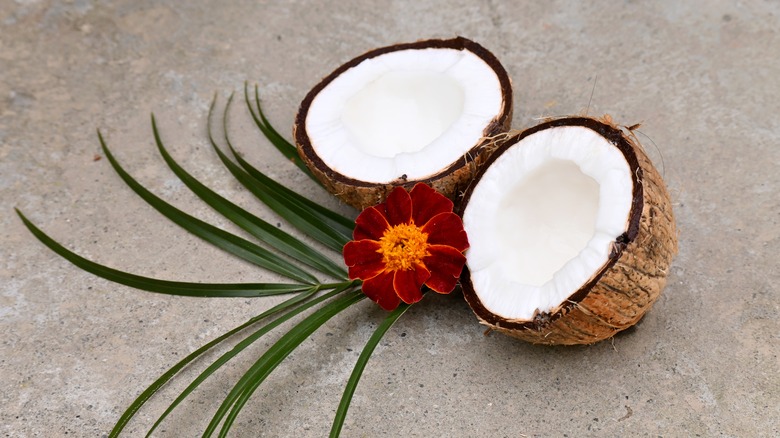What Could Happen If You Drink Too Much Coconut Water
Coconut water is now so ubiquitous in the U.S. it's hard to believe that this trendy beverage has been around for less than two decades. As Insider reports, a chance meeting at a Manhattan bar between two Brazilian women and Vita Coco's founders led to the launch of their coconut water company in 2004. NPR points to a Merrill Lynch report that showed explosive growth in a market that once didn't even exist, going from zero to a 35-million-dollar industry in only five years.
It's not hard to understand why since drinking coconut water is like drinking from the fountain of youth. Good Housekeeping points to its natural electrolytes, including sodium, magnesium, and potassium, which help keep the body hydrated, leading to supple skin and better hunger management and digestion. Since it doesn't contain added sugars like other commercial sports drinks, coconut water is the perfect post-sweat session beverage to replenish stores. Its high potassium is also good for heart health, with studies showing that it reduces blood pressure. Coconut water was even used in IV drips during World War II when there was a saline shortage (via SF Gate).
Can you drink coconut water daily
While there are definite health benefits to adding coconut water to your diet, certified nutritionist Serena Poon tells Parade that drinking too much of it can be problematic to your health. Even if the brand of water does contain added sugar, its natural sweetness adds calories to your diet — although not as many as some sports drinks, Dr. Stacie Stephenson adds. Further, Parade notes that too much potassium can lead to hyperkalemia, a life-threatening condition that causes heart palpitations and chest pains. Those with kidney disease may want to avoid coconut water altogether since potassium is processed through the kidneys.
Healthline says that excess potassium can also act as a laxative. Because coconut water is considered high in FODMAP, which can cause digestive distress to people with sensitivities, the publication suggests limiting consumption and steering clear of brands that use added sugars to sweeten their waters.
While the benefits of coconut water can outweigh the drawbacks, the LA Times notes that it is lower in carbohydrates and sodium than other sports beverages. It also lacks protein, which are three key nutrients high-performance athletes need post-training. However, regular folks — who don't mind the low price tag — are likely fine rehydrating with it after the gym.

